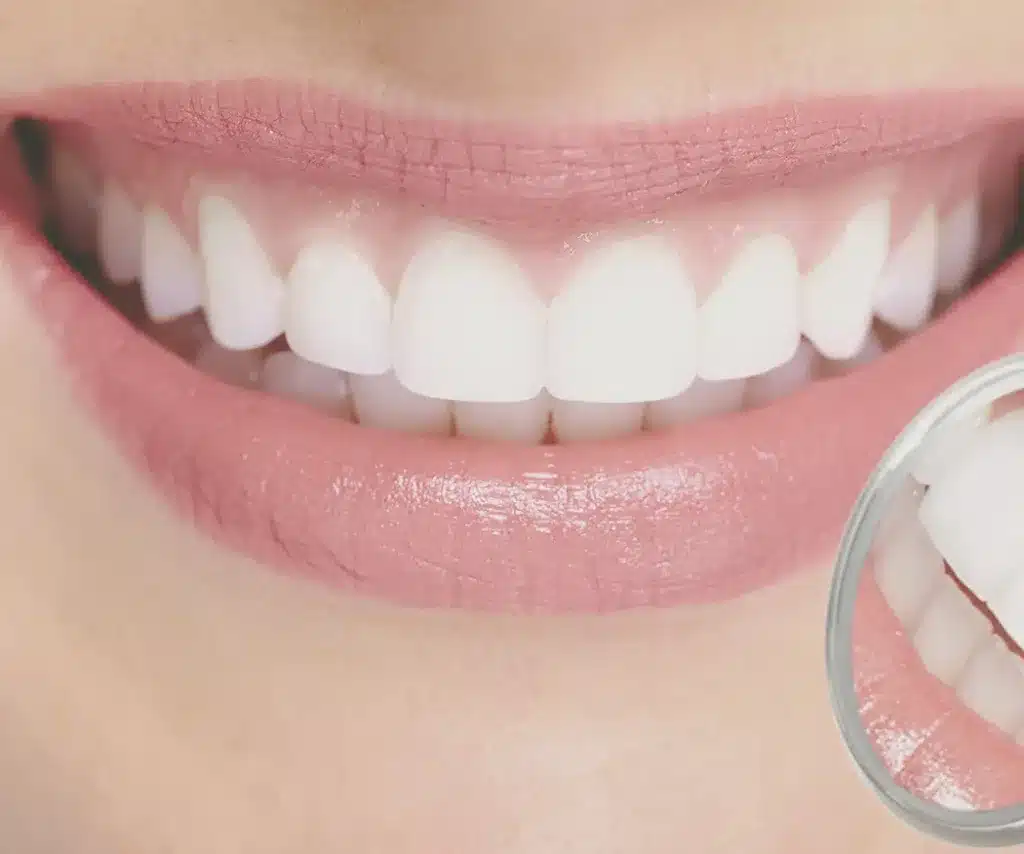Teeth whitening can be a transformative experience, offering a brighter smile and a boost in confidence. However, for those with sensitive teeth, the quest for pearly whites can be accompanied by apprehension and discomfort. If you’ve ever experienced sensitivity after a whitening treatment, you’re not alone. This article will guide you through gentle teeth whitening solutions tailored for sensitive teeth and provide tips on how to prevent and help sensitive teeth after whitening.
Understanding Teeth Sensitivity
Teeth sensitivity after whitening procedures is a common concern. The sensitivity can be a result of the whitening agents penetrating the tooth enamel and reaching the dentin—the softer layer beneath the enamel that houses nerve endings. When these nerve endings are exposed to changes in temperature or certain chemicals, they can produce a painful sensation.
Common Causes of Tooth Sensitivity
- Thinning Enamel: Over time, the protective enamel can wear away, leaving the sensitive dentin exposed.
- Toothpaste Highly acidic foods and beverages can erode enamel, increasing sensitivity.
- Gum Recession: When gums recede, they reveal the roots of the teeth, which lack the protective enamel layer.
- Cracked Teeth: Cracks in teeth can expose the dentin or even the nerve, leading to sensitivity.
Understanding the underlying causes of tooth sensitivity is key to selecting the appropriate whitening solution and managing discomfort.

How to Prevent Sensitive Teeth After Whitening
Preventing sensitivity begins with choosing the right whitening product and technique. Here are some strategies to minimize the risk of increased tooth sensitivity during and after the whitening process.
Use a Desensitizing Toothpaste
Before starting a whitening treatment, consider switching to a desensitizing toothpaste. These toothpastes contain ingredients like potassium nitrate that help block pain signals from the tooth to the brain. Using this type of toothpaste for a few weeks before whitening can strengthen the enamel and reduce sensitivity.
Opt for Whitening Treatments Designed for Sensitive Teeth
Many over-the-counter whitening products now cater to those with sensitive teeth. These products typically contain lower concentrations of whitening agents or are formulated with desensitizing additives to minimize discomfort.
Limit Whitening Session Duration
If you’re using a home whitening kit, follow the manufacturer’s recommended usage time. Overexposing your teeth to whitening agents can exacerbate sensitivity. Shorter sessions with gentle products can still yield great results without the pain.
Avoid Acidic Foods and Beverages
Acidic substances can aggravate sensitive teeth. It’s best to avoid or limit intake of items like citrus fruits, tomatoes, and soda during the whitening process.
Sensitive Teeth Whitening Solutions
For those with tooth sensitivity, there are several gentle methods to achieve a brighter smile without the discomfort.
Over-the-Counter Teeth Whitening Strips and Gels
Look for whitening strips and gels specifically designed for sensitive teeth. These often have a lower concentration of hydrogen peroxide or carbamide peroxide, which are the active ingredients in many whitening products.
Whitening Toothpaste and Mouthwashes
Whitening toothpastes and mouthwashes can be a milder alternative for those with sensitive teeth. While they may take longer to show results, they’re less likely to cause significant sensitivity.
In-Office Treatments with a Dental Professional
Dentists offer professional teeth whitening services that can be customized for your sensitivity level. They may apply a protective gel to your gums or use a rubber shield to protect the soft tissues in your mouth.

How to Help Sensitive Teeth After Whitening
If you’ve already undergone a whitening treatment and are experiencing sensitivity, there are several steps you can take to alleviate discomfort.
Maintain Good Oral Hygiene
Continue to brush and floss regularly, but be gentle. Consider using a soft-bristled toothbrush and avoid abrasive toothpaste that can further irritate sensitive teeth.
Use Sensitivity Relief Products
There are numerous products available, such as sensitivity relief gels and mouthwashes, that can offer temporary relief from discomfort. Look for those containing fluoride, which can help remineralize enamel and reduce pain.
Take a Break from Whitening
If you’re in the middle of a whitening regimen and experience significant sensitivity, it’s okay to pause the treatment. Give your teeth time to recover before continuing.
Consult Your Dentist
If sensitivity persists, visit your dentist. They can provide professional advice, recommend appropriate products, and ensure there are no underlying dental issues contributing to your sensitivity.
Tips for Long-Term Maintenance of Whitened Teeth
Once you’ve achieved your desired level of whiteness, maintaining your smile while preventing sensitivity is crucial.
Adopt a Whitening-Safe Diet
Minimize the consumption of foods and drinks that stain teeth, such as coffee, tea, red wine, and dark berries. When you do indulge, rinse your mouth with water afterward.
Follow Up with Regular Dental Visits
Regular check-ups and cleanings can help catch any potential issues early and keep your teeth looking their best.
Consider Touch-Up Treatments
Depending on the initial whitening method used and your personal habits, you may need periodic touch-ups to maintain your smile. These treatments should be spaced out to avoid exacerbating tooth sensitivity.

Final Thoughts on Teeth Whitening for Sensitive Teeth
Teeth whitening doesn’t have to be a painful experience, even for those with sensitive teeth. By understanding the causes of sensitivity, taking preventive measures, and choosing gentle whitening solutions, you can enjoy a brighter smile with minimal discomfort.
Remember, it’s always best to consult with a dental professional before beginning any whitening regimen, especially if you have a history of sensitive teeth. With the right approach and care, sensitive teeth can achieve the same dazzling results as any other smile.
Takeaway
Sensitive teeth require special consideration when it comes to teeth whitening, but with the right approach, it’s entirely possible to achieve a brighter smile without the pain. Be proactive about preventing sensitivity, choose gentle whitening methods, and maintain your oral health to keep your smile shining bright.
If you’re ready to achieve a brighter smile without the discomfort of sensitivity, schedule a consultation with the experienced team at Legacy Dental. Our dental professionals specialize in tailored whitening solutions that cater to your unique needs. For more information or to book an appointment, contact Legacy Dental today. Let’s work together to bring out the best in your smile!



